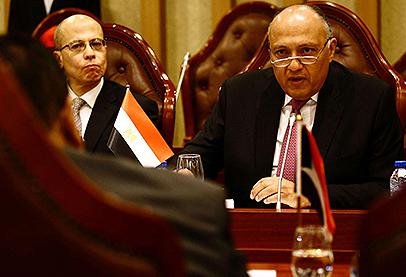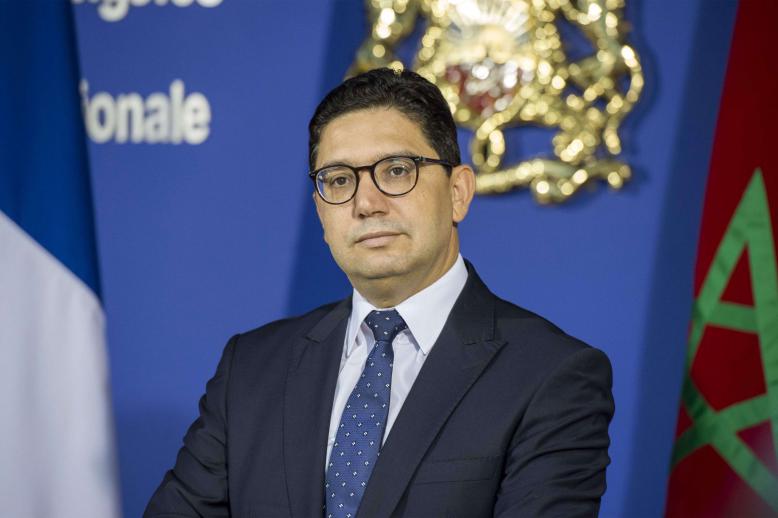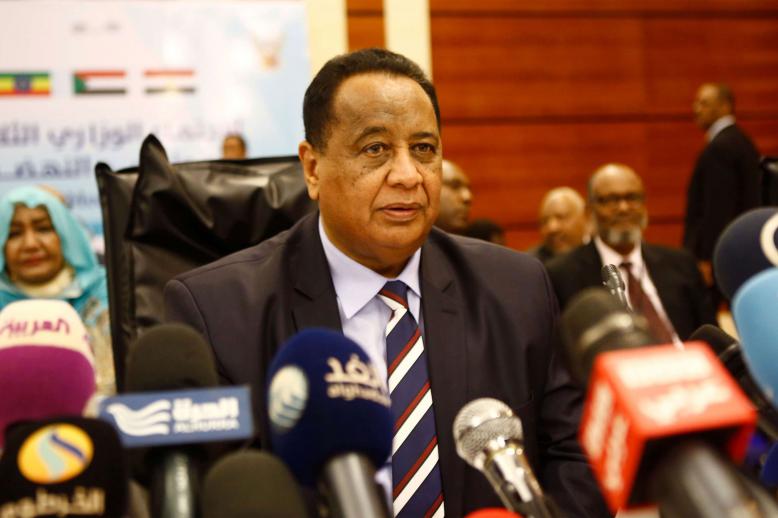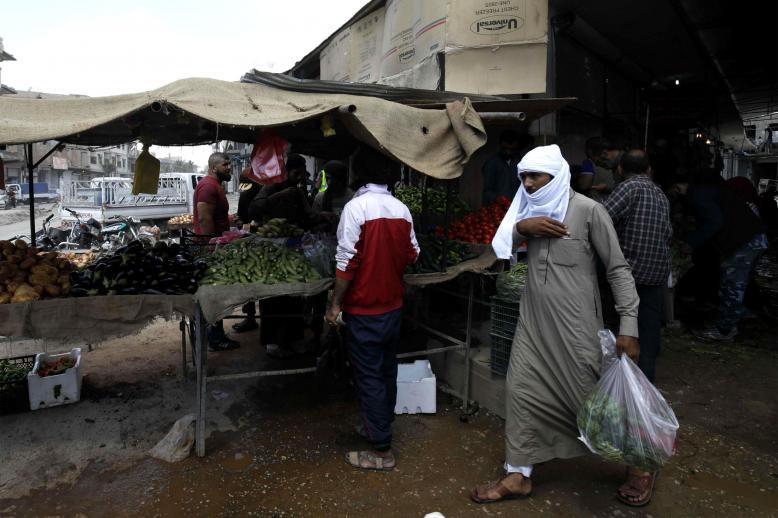Egypt tries to contain Sudan but challenges, suspicions remain

Egypt is intensifying efforts to contain Sudan and curb Turkish and Qatari influence in the country. The Egyptian drive is facing hurdles, however, due to sticky issues over Egyptian-Sudanese ties and Khartoum’s attempts to play regional rivals off each other, experts said.
“This is so clear in the administration of the Sudanese president playing the Saudi-UAE-Egyptian alliance against the Qatari-Turkish one,” said Hassan Nafaa, a professor of political science at Cairo University. “It does this with the aim of benefiting the most from all alliances, without losing any of them.”
Egyptian President Abdel Fattah al-Sisi sent his intelligence chief, Abbas Kamel, to Khartoum on March 11 to meet with Sudanese President Omar al-Bashir, Sudanese intelligence chief Salah Gosh and Sudanese military commanders.
Sudan’s National Intelligence and Security Services (NISS) directed the country’s newspapers to stop their “hostile campaign” against Egypt during Kamel’s visit, the Sudan Tribune reported.
The move was reminiscent of Sisi’s call in January for Egypt’s media to stop attacking Sudan. “I hope the Egyptian media doesn’t use offensive language against Sudan or any other country no matter how much anger or pain they feel towards that country,” he said.
Kamel’s visit to Khartoum was one day after Qatari Foreign Minister Mohammed bin Abdulrahman al-Thani visited the Sudanese capital and met with al-Bashir. A few days earlier, Sudan signed investment deals with Turkey, which agreed to extend a credit line of $1 billion to Sudan, money the country badly needs to address growing financial concerns.
Many questioned whether al-Bashir would be able to uphold traditional alliances with Egypt and Saudi Arabia while strengthening ties with regional rivals Turkey and Qatar.
The view in Cairo is increasingly suspicious towards Khartoum’s ties with Doha and Ankara. Egypt accused Qatar and Turkey of seeking to undermine its national security and supporting the outlawed Muslim Brotherhood.
Turkish President Recep Tayyip Erdogan visited Sudan in December, signing several investment and cooperation deals, including an agreement to take over administrative control of the Red Sea island of Suakin.
Cairo watched the developments with concern and moved to mend fences with Sudan, including with the creation of a bilateral committee of foreign ministers and intelligence chiefs to discuss any issues.
However, only days after Erdogan’s visit, Sudan recalled Ambassador Abdel Mahmud Abdel Halim from Cairo for consultations. He returned to Cairo on March 8 but said problems between his country and Egypt had not been resolved.
This, observers said, indicated that Egyptian attempts to contain Sudan would face major challenges, not least a decades-long border dispute over the Halayeb Triangle.
“This issue can torpedo all Egyptian efforts to be on good terms with Sudan, with Khartoum raising it every now and then,” said Noha Bakr, a political science professor at the American University in Cairo.
Sudan, which renewed its protest over Egypt’s control of the Halayeb Triangle at the United Nations in January, suggested either international arbitration or a new border demarcation deal with Cairo to resolve the dispute.
Regarding the latter suggestion, Sudan was inspired by a maritime boundary demarcation deal between Egypt and Saudi Arabia in April 2016.
Both proposals were rejected by Cairo, which views the Halayeb Triangle as an inalienable part of its territory. Khartoum has been contesting the Halayeb Triangle, an area of approximately 20,580 sq.km, since 1958.
Egypt has sought to pressure Sudan over its position on Ethiopia’s Renaissance Dam, as well as Khartoum’s offering of refuge to hundreds of members of the Muslim Brotherhood, designated a terrorist organisation in Egypt.
Sudan has said it believes that the Renaissance Dam project will ultimately benefit it and has made plans to purchase electricity from Addis Ababa once the dam begins power generation. Cairo views the Sudanese position as something of a betrayal because of an unofficial agreement that Sudan and Egypt would stick together to ensure their share of Nile waters.
“True, Sudan has the right to defend its own interests but it also needs to consider the interests of its neighbours,” said Hani Raslan, a researcher from Egyptian think-tank Ahram Centre for Political and Strategic Studies. “Egypt tries to address the effects of the Sudanese position on the dam but this position gives Cairo the impression that Khartoum is not a partner it can trust.”
Ahmed Meghid is an Egyptian reporter based in Cairo.
This article was originally published in The Arab Weekly.




